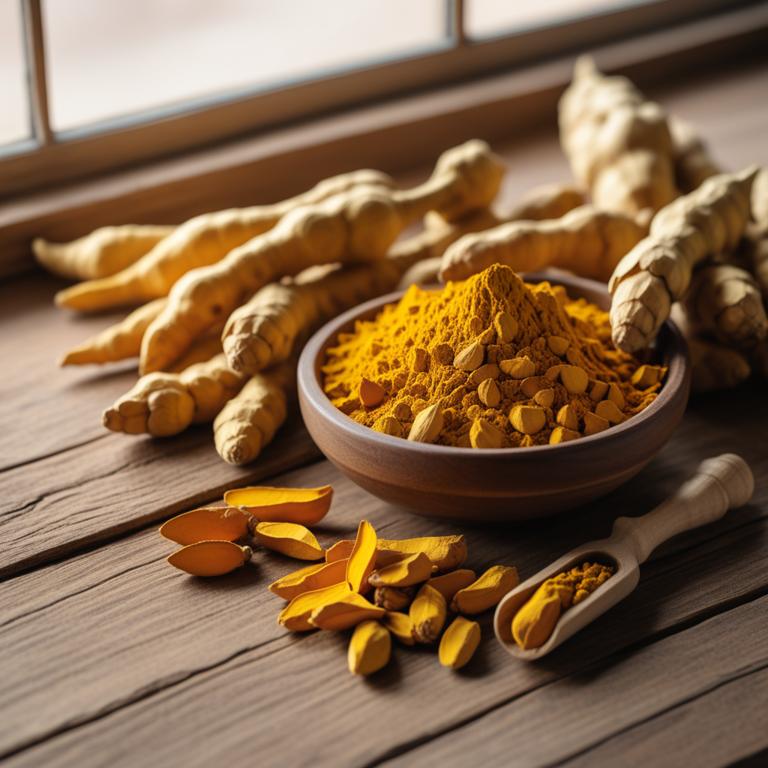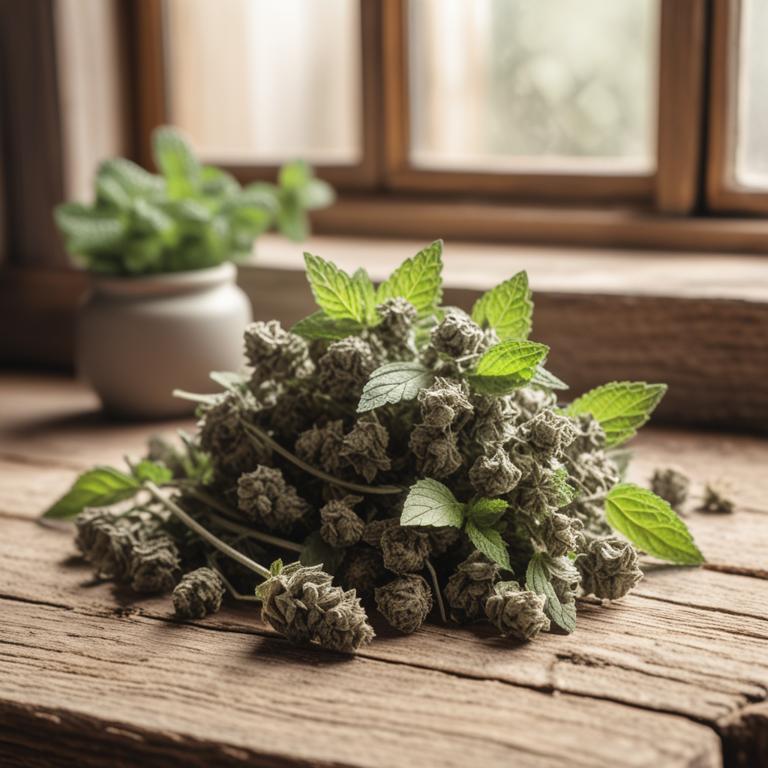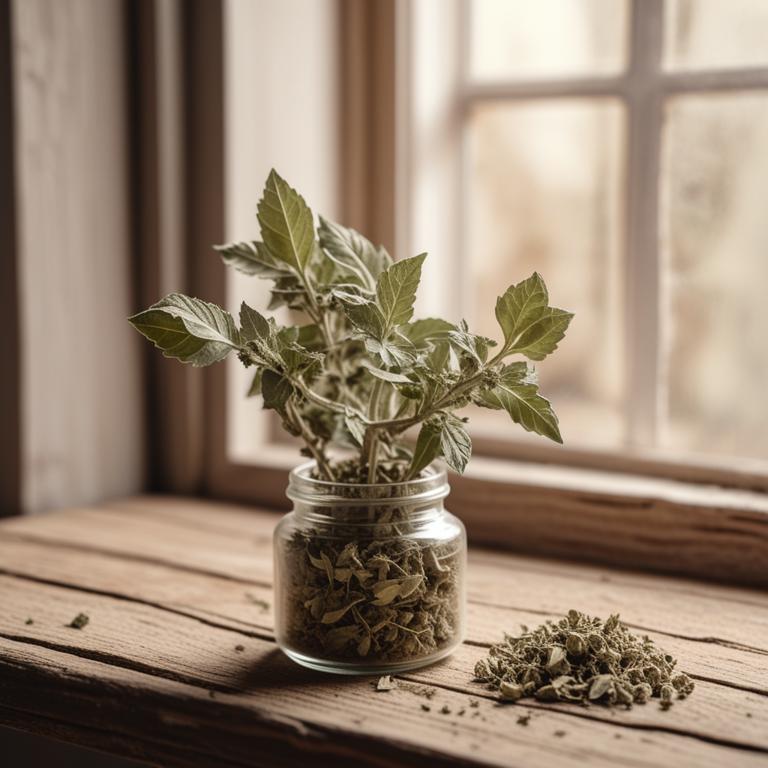Updated: Dec 1, 2024
Alzheimer's Disease: Exploring Causes, Medicinal Herbs, and Herbal Remedies

Alzheimer's disease is a condition that affects your memory and thinking skills, making everyday tasks difficult.
It's a progressive disease, meaning it gets worse over time. As it advances, people with Alzheimer's may struggle to remember their loved ones, forget how to do simple tasks, and even have trouble recognizing themselves. It's a heartbreaking condition that affects not only the person with the disease but also their family and caregivers. The exact causes of Alzheimer's disease are still not fully understood, but research suggests that a combination of genetic, lifestyle, and environmental factors contribute to its development. As we age, our brains naturally produce less of a protein called acetylcholine, which helps with memory and learning. However, in people with Alzheimer's, this decline is accelerated, leading to memory loss and cognitive decline.
Herbal remedies have been studied as a potential adjunct to traditional treatments for Alzheimer's disease. Certain herbs, such as Ginkgo biloba, have been found to have antioxidant and anti-inflammatory properties that may help slow down the progression of the disease. Bacopa monnieri, another herb, has been traditionally used in Ayurvedic medicine to improve memory and cognitive function. In terms of preparation, Ginkgo biloba tea is a popular way to consume this herb, and it can be easily made by steeping dried leaves in hot water. Bacopa monnieri can be consumed as a tea or added to supplements. Other herbs, such as St. John's Wort and passionflower, have also been studied for their potential benefits in managing symptoms of Alzheimer's disease.
It's essential to note that while herbal remedies may be beneficial, they should not replace traditional treatments but rather be used in conjunction with them.
Table of Contents
- What triggers the onset of alzheimer’s disease?
- What benefits can herbs provide in the treatment and management of alzheimer’s disease?
- What are the primary herbs utilized in the treatment of Alzheimer’s disease?
- What are the herbal preparations most commonly recommended for alzheimer’s disease?
- What are the herbs to avoid if you have Alzheimer’s disease?
- FAQ
What triggers the onset of alzheimer’s disease?
The main causes of Alzheimer's disease are complex and not fully understood, but research has identified several key factors that contribute to its development.
One of the most significant genetic risk factors is the presence of the APOE-e4 gene, which can increase the likelihood of developing Alzheimer's by up to 20 times. This gene affects the way the brain processes cholesterol, leading to the buildup of toxic proteins that damage brain cells. Additionally, genetic mutations that affect the production or function of key proteins, such as amyloid precursor protein, can also increase the risk of Alzheimer's. Traumatic brain injury has also been linked to an increased risk of Alzheimer's, particularly in individuals who experience repeated blows to the head or suffer a severe head injury.
This can lead to the accumulation of amyloid plaques and tau tangles in the brain, which are hallmark features of Alzheimer's disease. Other lifestyle factors, such as diabetes and hypertension, have also been identified as potential risk factors. High blood sugar levels and hypertension can damage blood vessels in the brain, reducing blood flow and oxygen delivery to brain cells. Obesity is another significant risk factor for Alzheimer's, with research suggesting that excess weight can lead to chronic inflammation in the body, which can damage brain cells and contribute to the development of Alzheimer's. Furthermore, obesity is often associated with other health conditions, such as diabetes and hypertension, which can also increase the risk of Alzheimer's.
While these factors do not guarantee the development of Alzheimer's, they can significantly increase the likelihood of the disease.
What benefits can herbs provide in the treatment and management of alzheimer’s disease?
Using herbs for Alzheimer's disease has shown promise in improving symptoms and quality of life for patients.
These herbs may help slow down the progression of the disease by reducing inflammation and oxidative stress in the brain. They may also help improve memory and cognitive function by increasing blood flow to the brain and boosting the growth of new neurons. In addition, some herbs have been found to have a positive effect on mood and anxiety, which is common in people with Alzheimer's.
They may also help reduce the risk of agitation and aggression, which can be challenging behaviors to manage. By using herbs in conjunction with conventional treatments, patients may experience a better quality of life and more independence. Some herbs have also been found to have antioxidant properties, which can help protect the brain from damage caused by free radicals.
This can lead to a slower decline in cognitive function and a longer period of independence.
What are the primary herbs utilized in the treatment of Alzheimer’s disease?
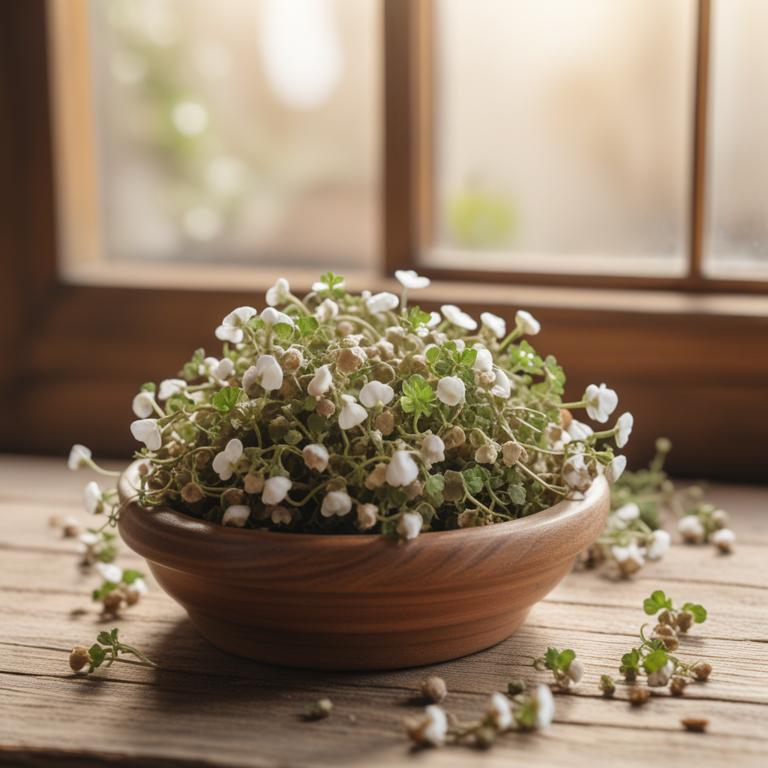
Herbs have been used for centuries to help manage Alzheimer's disease, a condition that affects memory and cognitive function.
One of the key herbs used is Bacopa monnieri, which has been shown to improve memory and cognitive performance by increasing the growth of new neurons in the brain. This is especially useful for people with Alzheimer's, who often experience a decline in brain cell growth. Another important herb is Ginkgo biloba, which improves blood flow to the brain and helps to remove toxins that can harm brain cells. This increased blood flow also brings more oxygen and nutrients to the brain, which is essential for maintaining healthy brain function. Ginkgo biloba has also been shown to improve memory and cognitive function, making it a valuable addition to any Alzheimer's treatment plan. Panax ginseng, also known as Asian ginseng, has been shown to improve cognitive function and memory by reducing inflammation in the brain.
Chronic inflammation is a major contributor to Alzheimer's disease, and Panax ginseng has been shown to reduce inflammation and promote healthy brain function. Salvia miltiorrhiza, also known as Chinese sage, has been used in traditional Chinese medicine for centuries to treat a variety of conditions, including Alzheimer's disease. It has been shown to improve cognitive function and memory by promoting the growth of new neurons in the brain and reducing inflammation. Finally, Curcuma longa, also known as turmeric, contains a powerful compound called curcumin, which has been shown to reduce inflammation and promote healthy brain function. Curcumin has been shown to improve memory and cognitive function in people with Alzheimer's disease, and may even help to prevent the disease from progressing. These herbs can be used individually or in combination to help manage Alzheimer's disease.
They are a natural and non-invasive way to improve cognitive function and memory, and may be used in conjunction with traditional treatments to improve overall brain health.
What are the herbal preparations most commonly recommended for alzheimer’s disease?

Herbal preparations can be a good option for people with Alzheimer's disease.
For instance, a capsule made from the herb Bacopa monnieri can help improve memory and cognitive function. This is because Bacopa monnieri contains compounds that help protect brain cells and enhance neurotransmitter activity. Decoctions, which are liquid extracts made by boiling herbs in water, can also be beneficial. A decoction of Ginkgo biloba can help improve blood flow to the brain, reducing the risk of memory loss and cognitive decline. This is because Ginkgo biloba contains flavonoids and terpenoids that have anti-inflammatory properties and help reduce oxidative stress. A tincture of Ashwagandha, which is an adaptogenic herb that helps the body cope with stress, can also be helpful.
Tinctures are concentrated liquid extracts that can be taken sublingually or added to food and drinks. Ashwagandha has been shown to reduce stress and anxiety, which can help alleviate symptoms of Alzheimer's disease. Drinking tea made from herbs like Rosemary and Sage can also be beneficial for people with Alzheimer's. These herbs contain compounds that have anti-inflammatory and antioxidant properties, which can help protect brain cells and improve cognitive function. Infusions, which are liquid extracts made by steeping herbs in hot water, can also be a good option. A infusion of Lavender and Lemon balm can help reduce anxiety and stress, which can help alleviate symptoms of Alzheimer's disease.
These herbs contain compounds that have a calming effect on the mind and body, which can help improve sleep and reduce symptoms of the disease.
Additional Resources:
What are the herbs to avoid if you have Alzheimer’s disease?
If you have Alzheimer's disease, it's crucial to know which herbs can be problematic.
Aconitum napellus, also known as monk's hood, contains a toxin that can cause heart problems and other severe issues. Taking it can worsen your condition or lead to serious complications. Taxus baccata, or yew, has a similar problem - its leaves contain a toxic compound that can harm your heart and even be fatal in large doses.
Datura stramonium, or jimsonweed, contains scopolamine, a substance that can cause hallucinations, confusion, and even death. People with Alzheimer's might already be experiencing memory loss and confusion, so adding this herb to the mix can make things much worse. Hyoscyamus niger, or henbane, has similar effects, with its scopolamine and hyoscyamine causing anxiety, confusion, and memory problems. Pausinystalia johimbe, also known as yohimbine, can cause anxiety, panic, and heart problems.
For people with Alzheimer's, these effects can be particularly concerning, as they may exacerbate existing symptoms and make it harder to manage the condition.
FAQ
Are there any specific herbs that can prevent alzheimer’s disease?
Research suggests that certain herbs may help prevent Alzheimer's disease.
Turmeric, for example, contains a compound called curcumin, which has been shown to reduce inflammation and prevent the buildup of amyloid plaques in the brain.
Additionally, ginkgo biloba may improve blood flow to the brain and protect against oxidative stress.
Is it safe to use herbal remedies for alzheimer’s disease during pregnancy?
It's generally not a good idea to use herbal remedies for Alzheimer's disease during pregnancy.
Some herbs can cause problems or affect the baby's development. If you're pregnant and considering using herbal remedies, it's essential to understand the potential risks and benefits.
It's also crucial to talk to your doctor about any concerns you may have.
Are there any herbs that can reduce the frequency of alzheimer’s disease?
Some research suggests that certain herbs may help reduce the risk of Alzheimer's disease.
For example, ginkgo biloba has been studied for its potential to improve memory and cognitive function.
Turmeric, which contains curcumin, has also been found to have antioxidant properties that may help protect against age-related brain damage.
Can i combine different herbal remedies for alzheimer’s disease?
You can combine different herbal remedies for Alzheimer's disease, but be cautious.
Some herbs might interact with each other or with medications. For example, ginkgo biloba and St. John's Wort can both affect blood clotting, so taking them together might increase the risk of bleeding.
Always research how different herbs interact.
Related Articles

Nausea and Its Causes: Herbal Remedies, Medicinal Treatments, and Natural Cures
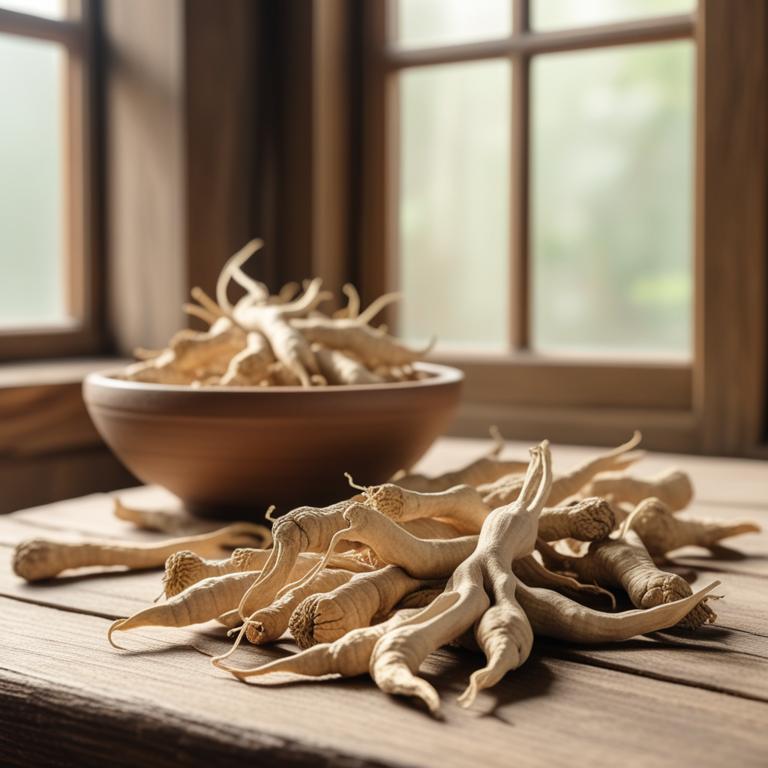
The Role of Medicinal Herbs in Neuritis Prevention and Treatment
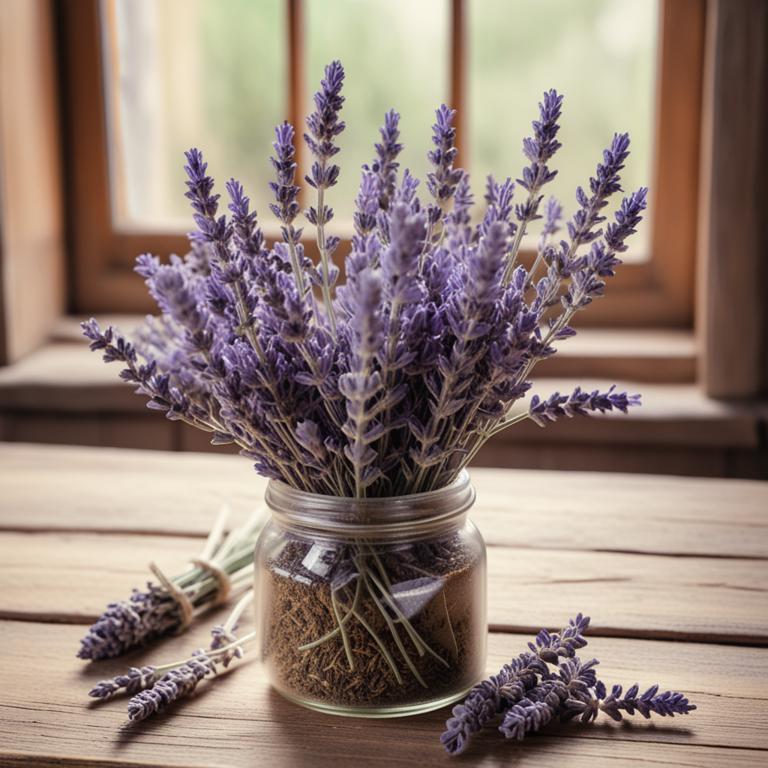
Anxiety Relief: Exploring Medicinal Herbs and Natural Preparations
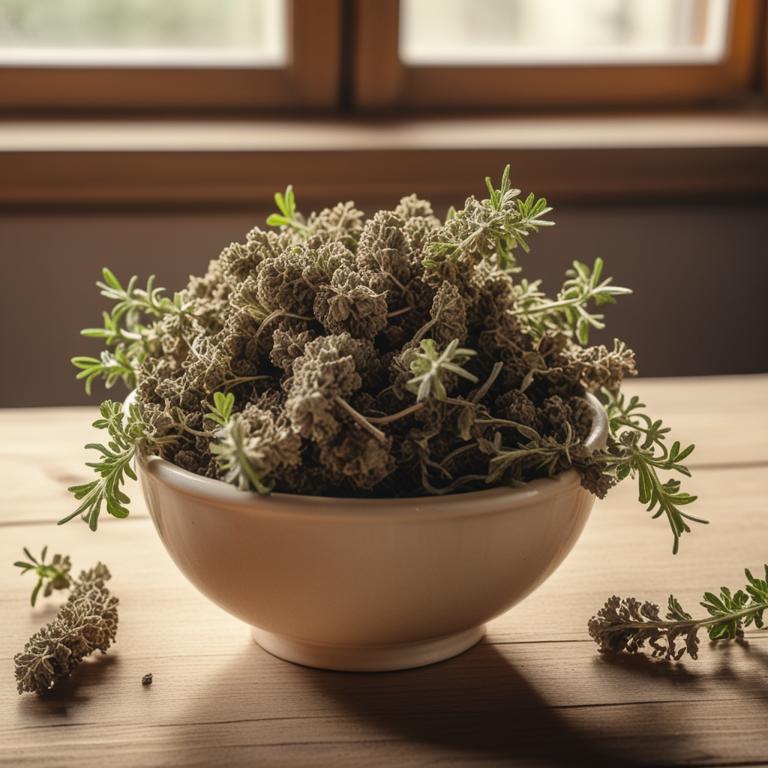
Speech Difficulty: Harnessing the Power of Medicinal Herbs and Herbal Preparations
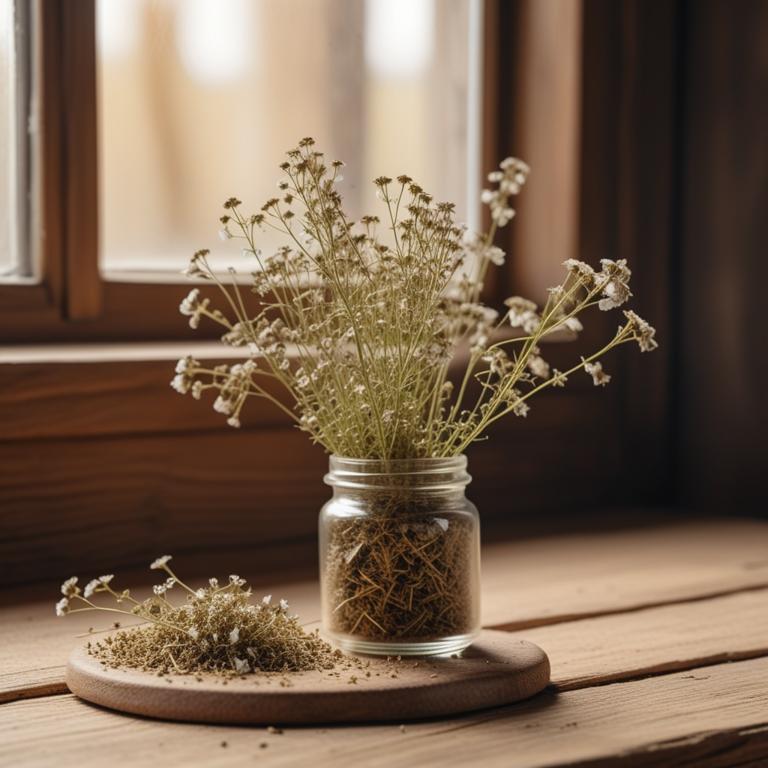
Sore Eyes Treatment with Medicinal Herbs and Herbal Preparations
